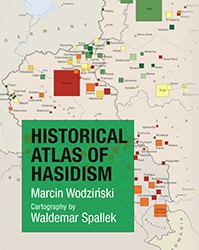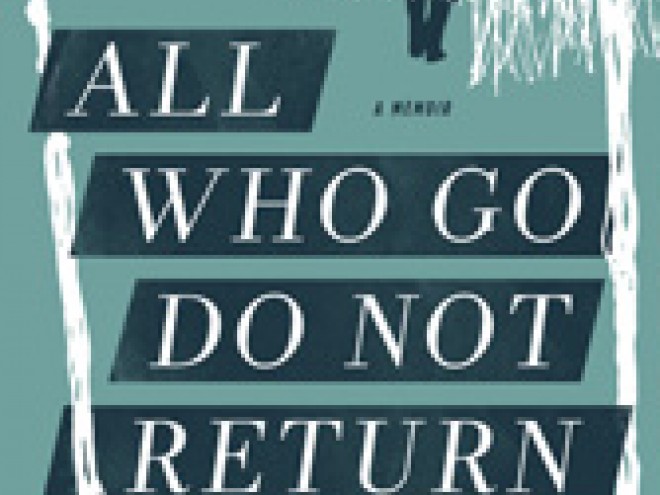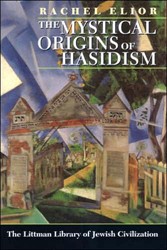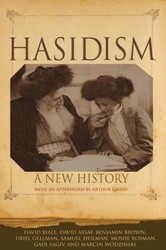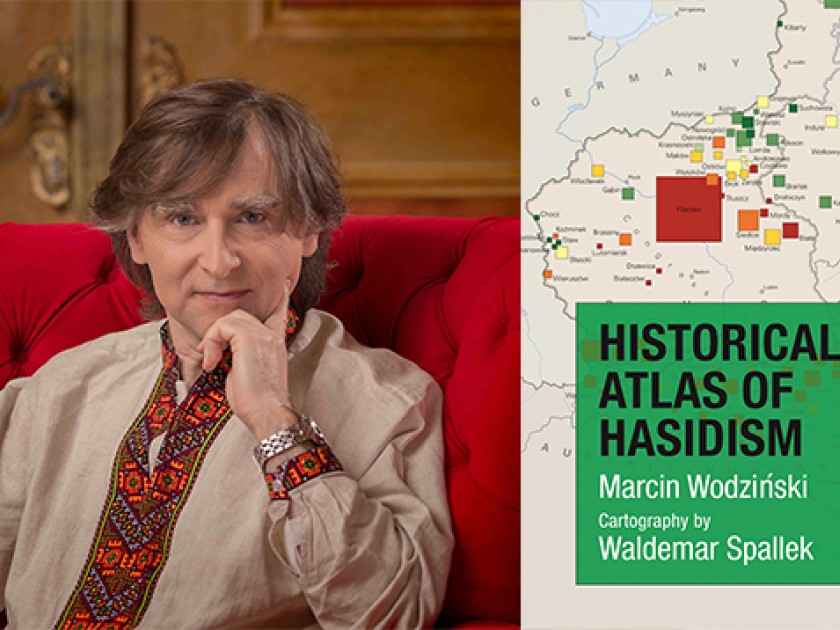
In advance of the 68th Annual National Jewish Book Awards ceremony on March 5th, 2019 (which you can buy tickets for here), Jewish Book Council is sharing short interviews with the winners in each category.
Marcin Wodziński’s Historical Atlas of Hasidism is the winner of the 2018 Nahum M. Sarna Memorial Award for Scholarship. With seventy-four maps, hundreds of photographs, charts, and tables, and a well-organized text, the book explores the relationship between space and spirit, and the demographic expansions and shifts of Hasidic communities with a focus on the rank and file. The judges of the Scholarship Award say: “By mapping the geographic shifts and demographic expansions [of Hasidism], the book offers unique insight into the relationship between location, distinct types of religious leadership, and unique forms of cultural expression.”
Which three Jewish writers, dead or alive, would you most like to have dinner with?
Fania Lewando, S.Y Agnon, and I.B. Singer. Great authors who came from Eastern Europe, and were all vegetarians, so we could peacefully dine together.
What’s your favorite book that no one else has heard of?
As I read mostly in Polish, I trust much of the literature I read is unknown to the readers of this blog anyway. If I were to choose, I’d pick House of Day, House of Night by my favorite novelist Olga Tokarczuk.
Which Jewish writers working today do you admire most?
Strangely enough, I come from a place where it is inappropriate to ask about people’s creed and ethnicity more generally. This is why I don’t divide writers into Jewish and non-Jewish.
What are you reading right now?
Adam Zagajewski, Selected poems (in Polish); Katja Petrowskaja, Maybe Esther (in Polish translation); Uriel Gellman, The Emergence of Hasidism in Poland; and galleys of Studying Hasidism, to be published in August.
What are your greatest creative influences (other than books)?
People, of course. My father, who taught me thinking. Professor Jerzy Woronczak z”l, my first academic mentor. Professor Moshe Rosman, my ultimate academic mentor. My university’s financial office who teaches me every day how to survive in extreme conditions. My current government who teaches me to not take for granted democracy and constitutional rights and freedoms.
What do you hope readers will take away from your book?
First, the atlas looks at Hasidism beyond the leaders — at thousands of their followers living far from Hasidic centers. This is a new, innovative, and very needed corrective and I hope readers will appreciate it. Second, it examines Hasidism in its historical entirety from its beginnings till today. Few publications are similarly comprehensive. Third, responding to the challenge of digital humanities, it uses the diverse collection of qualitative and quantitative data, including extensive GIS-processed databases of historical and contemporary records. The largest database is nearly 130,000 records! Finally, many of the maps are simply beautiful, so my wife says they will make a perfect print on tablecloths, T‑shirts, and postcards. We can’t wait to open the souvenir shop!
